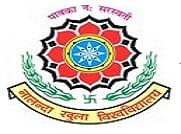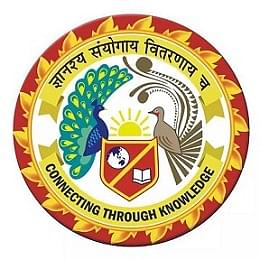Universityfindo
:More about Ph.D (Islamic Studies)
Introduction
about Ph.D (Islamic Studies)
A
Ph.D. in Islamic Studies is an advanced academic pursuit exploring the
multifaceted dimensions of Islam, encompassing theology, history, philosophy,
and social aspects. This rigorous program involves in-depth research, critical
analysis of Islamic texts, and engagement with contemporary issues within the
Islamic world. Scholars delve into the diverse traditions and cultures
influenced by Islam, fostering expertise to contribute original insights to the
field. Emphasizing inter disciplinarity, the program designed by the Top Ten University in India
prepares graduates for careers in academia, research, and institutions focused
on understanding and addressing the complexities of Islamic thought and
practice globally.
How can I apply for admission to
Ph.D(Islamic Studies)?
To apply for admission to a Ph.D. program by top government college in India in Islamic studies, follow these general steps:
1. Research
Programs and Institutions: Identify universities or
academic institutions offering Ph.D. programs in Islamic Studies. Consider
factors such as faculty expertise, research facilities, and program structure.
2. Review
Admission Requirements: Check the specific admission
requirements of each program. Typically, this includes a master's degree in
Islamic Studies, Religious Studies, or a related field. Some programs may
accept candidates with a strong bachelor's degree.
3. Prepare
Application Materials: Gather required documents,
including:
·
Curriculum Vitae (CV)
·
Academic transcripts
·
Letters of recommendation from
professors who can attest to your academic abilities
·
Statement of purpose outlining
your research interests, academic background, and reasons for pursuing a Ph.D.
in Islamic Studies
·
Writing samples, such as
research papers or a master's thesis
·
Standardized test scores (if
required)
4. Language
Proficiency: Demonstrate proficiency in relevant languages, such as Arabic
or Persian, depending on the program's requirements.
5. Contact
Potential Supervisors: Reach out to potential Ph.D.
supervisors within the programs you're interested in. Discuss your research
interests and seek their guidance.
6. Prepare
for Entrance Exams: Some programs may require
standardized tests, such as the GRE (Graduate Record Examination) or
subject-specific exams. Prepare for and take any required exams.
7. Submit
Online Application: Complete the online application
form for each institution you're applying to. Pay attention to deadlines and
provide accurate information.
8. Application
Fee: Pay any required application fees. Some institutions may offer
fee waivers or reductions based on financial need.
9. Interviews
or Writing Samples: Be prepared for interviews or
requests for additional writing samples as part of the selection process.
10. Financial
Aid and Scholarships: Explore available funding
options, such as scholarships, grants, or assistantships, to support your Ph.D.
studies.
11. Follow
Up: After submitting your application, follow up with the
admissions office to ensure that all materials have been received. Keep track
of important deadlines and any additional requirements.
What is the eligibility for Ph.D(Islamic Studies)?
Eligibility
criteria for a Ph.D. in Islamic studies by the Best University in India can vary among universities and specific programs.
However, common eligibility requirements often include:
- Educational
Background:
- A
master's degree in Islamic Studies, Religious Studies, or a closely
related field is often required. Some programs may consider exceptional
candidates with a strong bachelor's degree.
- Minimum
GPA:
- Many
Ph.D. programs have a minimum GPA requirement for both undergraduate and
graduate studies. This requirement varies, so check the specific criteria
of the program you are interested in.
- Language
Proficiency:
- Proficiency
in relevant languages, such as Arabic, Persian, or others, may be
required depending on the program's focus. Some programs may assess
language proficiency through exams or coursework.
- Letters
of Recommendation:
- Typically,
applicants need to submit letters of recommendation from professors who
can speak to their academic abilities and potential for successful
doctoral study.
- Statement
of Purpose:
- A
well-articulated statement of purpose outlining your research interests,
academic background, and reasons for pursuing a Ph.D. in Islamic Studies
is usually required.
- Research
Proposal:
- Some
programs may require a detailed research proposal outlining your intended
area of research, the research questions you aim to address, and your
proposed methodology.
- Interview:
- In
some cases, applicants may be required to attend an interview as part of
the selection process. This interview may assess your research interests,
academic background, and suitability for the program.
- Standardized
Tests:
- Some programs may require standardized test scores, such as the GRE (Graduate Record Examination) or subject-specific exams. However, the importance of these tests can vary among institutions.












